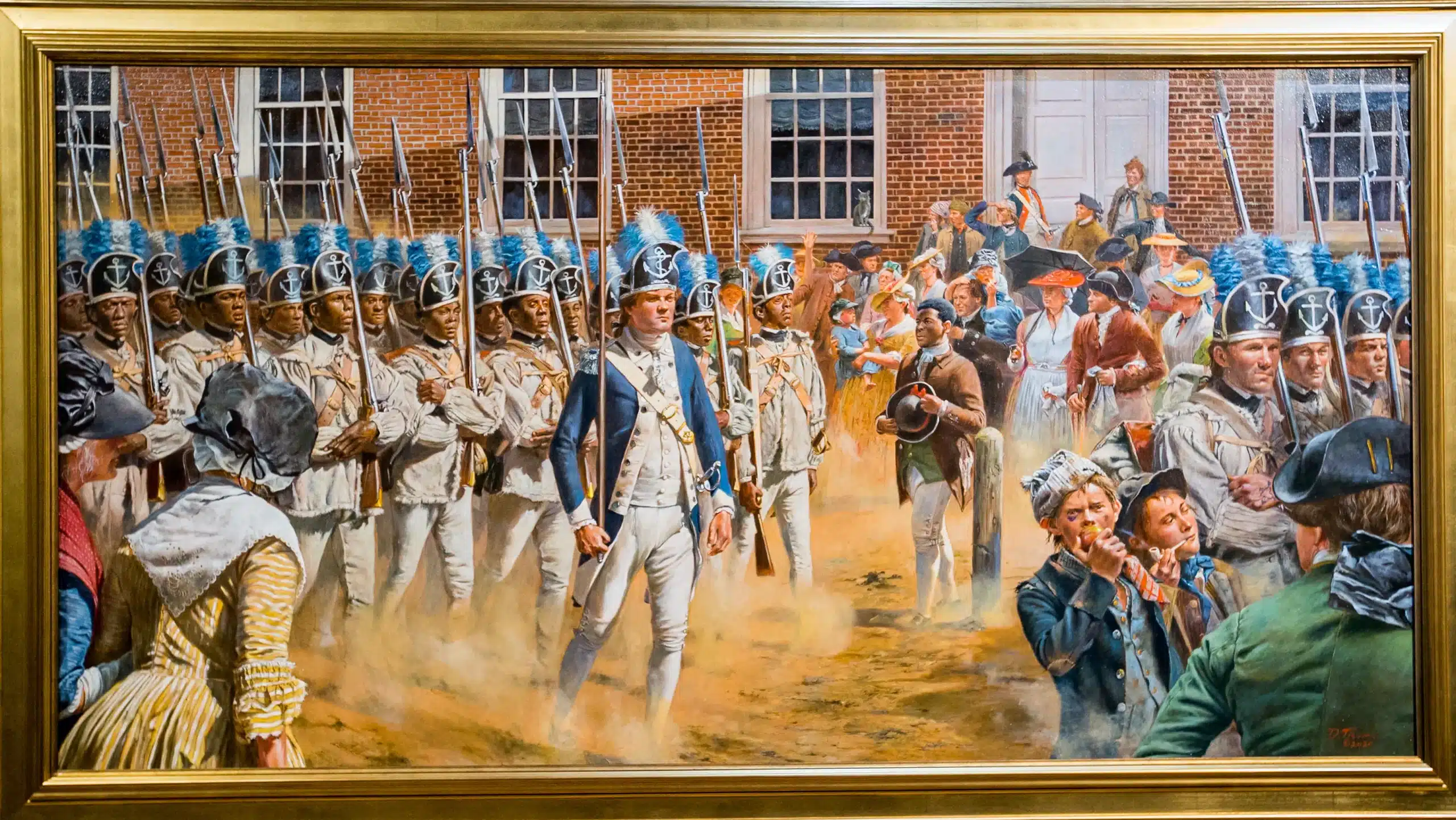
Major General James Varnum’s pioneering suggestion to enlist both free and marginalized African Americans in the Continental Army, in order to address troop shortages, was a groundbreaking development in military tactics. Creating a standard for the inclusion of military personnel.
Rhode Island reached a significant milestone by enlisting Black soldiers. Over 225 individuals, including 140 African Americans, were able to enlist due to this legislative decision, which also marked a major shift in how African Americans were perceived in the military. The integration and diversity of the US military was profoundly impacted by the inclusion of African American soldiers in the 1st Rhode Island Regiment, challenging conventional ideas about race and service.
To increase their forces in the American Revolution, the Continental Army established the 1st Rhode Island Regiment. In order to solve the lack of troops, General James Mitchell Varnum suggested creating a regiment in Rhode Island that would enlist enslaved individuals. The proposal aimed to address the lack of white recruits and enhance the army’s overall strength. The recruitment of enslaved people by Lord Dunmore resulted in George Washington having a change of heart regarding the enlistment of Black soldiers. Washington changed his perspective when the British promised freedom to enslaved individuals who fought for them, leading to a reassessment of recruitment policies in the Continental Army.
The inclusion of Black soldiers in the 1st Rhode Island Regiment boosted the Continental Army’s manpower and challenged societal norms and policies surrounding African American military involvement in the American Revolution. Ignoring warnings, 250 men, including former slaves, joined the regiment despite doubt and resistance. These individuals showed determination and bravery by choosing to fight for independence and equality in a biased society.
The 1st Rhode Island Regiment played a significant role in shaping key engagements of the American Revolution. The Battle of Rhode Island witnessed an exceptional incident where a regiment composed of liberated slaves and recruits from different backgrounds showed extraordinary bravery and valor. The 1st Rhode Island Regiment soldiers fought bravely and persisted, backing the Continental Army.
The Black soldiers of the 1st Rhode Island Regiment showed bravery and dedication by shielding their injured commanding officers when facing their enemies. Their military skills and unwavering commitment to their comrades and cause were showcased through their selfless act. The regiment’s reputation as a strong unit in the Continental Army was established through their displays of camaraderie and heroism, earning them respect from both allies and enemies.
The enlistment of Black soldiers in the 1st Rhode Island Regiment had a major impact on the Continental Army, molding perspectives and approaches in the American Revolution. The exceptional performance of African American soldiers in the regiment during the Battle of Rhode Island greatly influenced the course of the war. The regiment’s reputation was strengthened through their display of bravery, commitment, and success in combat, ultimately impacting the recruitment strategies of the Continental Army.
The bravery of Black soldiers in the 1st Rhode Island Regiment inspired more African Americans to enlist, leading to a more diverse Continental Army and enhanced military strength. The regiment’s successful integration of African American, Native American, and white soldiers demonstrated the importance of inclusivity and unity for military success. The Continental Army improved battlefield performance by changing recruitment practices, increasing human resources, and fostering stronger bonds among diverse soldiers.
The 1st Rhode Island Regiment soldiers, including the freed slaves, faced challenges when reintegrating into civilian life after the American Revolution. Many soldiers encountered challenges when transitioning back to civilian life, such as financial hardships, social bias, and hurdles in receiving the benefits they were promised for their military service. The challenges underscored the persistent inequality and injustice experienced by African American veterans, highlighting the arduous journey towards equality and acknowledgment.
Lt. Colonel Olney’s unwavering support for his soldiers exemplifies the enduring impact of the regiment. Lt. Colonel Olney demonstrated exceptional compassion and dedication to the well-being of the 1st Rhode Island Regiment veterans through his commitment to their freedom and fair compensation. Not only did he exhibit dedication to justice, but he also established a benchmark for equal treatment of all soldiers, irrespective of their backgrounds, in the military. The impact of this demonstration on leadership and fairness persisted beyond the Revolutionary War, shaping the U.S. military and championing inclusivity.
